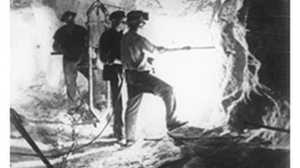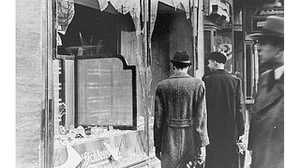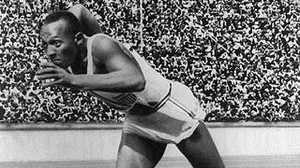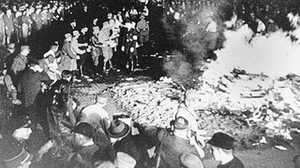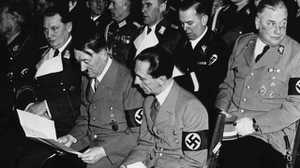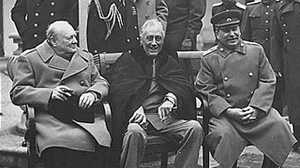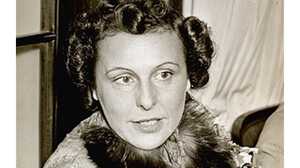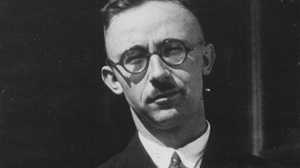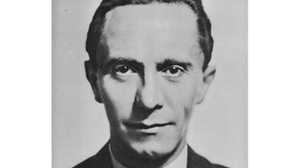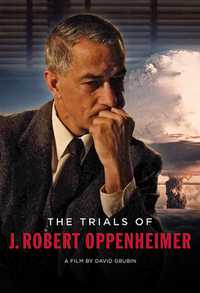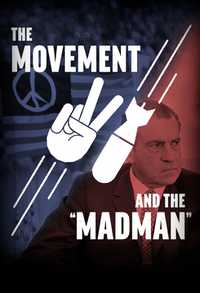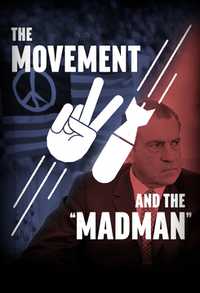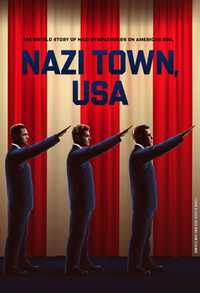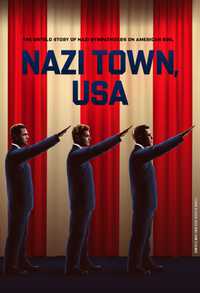The Man Behind Hitler
Title card:
A film by
Lutz Hachmeister
Michael Kloft
Title card:
Voice of Joseph Goebbels
Kenneth Branagh
Reading from diary: Excerpts from Joseph Goebbels' diary. 1924: I was born on October 29, 1897, in Rheydt, a small industrial town near Düsseldorf on the Lower Rhine. My father Fritz was a clerk earning 150 marks a month. Around 1900, he bought a small, unprepossessing house slightly further up Dahlenstrasse, where we still live today.
Reading from diary: I can recall a protracted illness, pneumonia. I had a fever and dreadful hallucinations, which left me weak and frail as a child. Then I remember a Sunday when our family took a long walk to Geistenbeck. Next day the problem with my foot returned. What incredible pain! Despite months of treatment, my foot was paralysed for life. From that moment, my youth held little joy for me. I had to look after myself, and could no longer join in the other children's games. I became lonely and solitary. My former friends had no affection for me.
Reading from diary: 1915 to 1918: My love for Lene Krage. A first kiss, in Gartenstrasse. Lene is headstrong, so there's plenty of anguish. I start keeping a diary. I write many poems. They are all lost. I spend all my time with Lene in a state of youthful bliss. Then 1917 and a painfully hungry year. We get through it somehow. Goodbye to Lene. Locked inside the Kaiserpark at night, I kiss her breast for the first time. For the first time, she gives herself to me.
Title card: In 1919 Goebbels studies German literature at the University of Heidelberg.
Title card: He experiences love affairs, jealousy and bouts of depression.
Title card: He completes his doctorate in 1921, as Germany staggers from inflation and unemployment in the wake of the First World War.
Title card:Finding no work as a writer, Goebbels takes a job with a bank in Cologne.
Reading from diary: Need focuses one's thoughts. I write despairing poems. Jews. I reflect on my financial predicament. Spiritual illumination. Bavaria. Hitler. Books: Thomas Mann, and Heinrich Mann's Man of Straw. Dostoyevsky's The Idiot. I am overwhelmed. The Revolution is inside me. But I remain pessimistic about everything. I loathe Cologne; the bank is a waste of time. My salary next to nothing, and I can't bear it any more. So I decide to go sick.
Reading from diary: July 4, 1924. We need a firm hand in Germany. Let's put an end to all the experiments and empty words, and start getting down to serious work. Throw out the Jews, who refuse to become real Germans. Give them a good beating too. Germany is yearning for an individual, a man -- as the earth yearns for rain in the summer. Only our reserves of strength, enthusiasm and utter commitment can save us now. Can only a miracle -- and nothing less -- save us?
Reading from diary: July 17, 1924. I'm so despondent about everything. Everything I try goes totally wrong. There's no escape from this hole here. I feel drained. So far, I still haven't found a real purpose in life. Sometimes, I'm afraid to get out of bed in the morning. There's nothing to get up for.
Reading from diary: My life lacks any meaning. I'm meandering, aimlessly. Lost in the universe. Lack of money is oppressive. What a terrible fate! Why bother to read these wretched newspapers? It just makes you feel more stupid. Politics is killing me.
Reading from diary: September 27, 1924. My reputation as an orator, and political and cultural author is spreading throughout the Rhineland among supporters of National Socialism. This evening I am giving a speech in Neuss. I never prepare. Talking impromptu isn't nearly as difficult as I imagined. But practice, I tell myself, makes perfect. I'll get some practice at this small gathering of supporters. I can feel satisfied with my assignment. I get satisfaction from this type of work. My quest is for the new Reich and the New Man! And I can find them only through faith! Faith in ourselves will guide us to final victory! Heil!
Reading from diary: April 13, 1926. I arrived in Munich in the evening. Hitler's car was there. We drove to the hotel. What a grand reception! I spoke in the historic Bürgerbraeu. Kaufingerstrasse, Frauenkirche: awesome Gothic architecture. Went to the Bratwurstglöckle. Sausages and beer. Living in Munich! Engagingly bourgeois! A delightful city -- and the sun was shining on us. Back to the hotel, where I learned that Hitler had phoned. He wanted to welcome us, and in 15 minutes he was there. Tall, healthy and vigorous. I like him. He puts us to shame with his kindness.
We met. We asked questions. He gave brilliant replies. I love him. The social issue. Completely new insights. He has it all thought out. His ideal: a mixture of collectivism and individualism. Production must remain a matter for individuals. Big corporations, trusts, etc. are all to be nationalized. This is what we discuss. I can accept this firebrand as my leader. I bow to his superiority; I acknowledge his political genius!
Reading from diary: June 16, 1926. Hitler is still the same dear comrade. You can't help liking him as a person. And he has a stupendous mind. As a speaker he has constructed a wonderful harmony of gesture, facial expression and spoken word. The born motivator! With him, we can conquer the world. Give him his head, and he will shake the corrupt Republic to its foundations.
Reading from diary: October 30, 1926. Plauen. A letter from Hitler. My job in Berlin has been approved. Hurray! I'll be there in a week's time.
Title card: Goebbels is appointed Nazi Party leader for the Berlin region.
Reading from diary: April 26, 1928. Gave a talk in Friedenau yesterday. A tight-[expletive] bourgeois audience. Slowly but surely I got through to them, though.
Reading from diary: I saw Eisenstein's film Ten Days That Shook the World. It's too contrived, and the best scenes are ruined. Some crowd shots are very good. So that's what revolution is. We can learn a lot from these Bolsheviks, most of all from their use of propaganda. But the film is too explicitly propagandistic. Less would have been more effective.
Title card: SA: Sturmabteilung, the Nazi private army
Reading from diary: May 17, 1928. I drove cross- country with a detachment of the SA. Ascension Day and glorious weather. We set out from Pichelsdorfer Bridge, then via Spandau, Neuendorf, Tegel, everything fine until then. Then we took Müllerstrasse into Wedding. A glorious parade! The streets were lined with Communists, shouting and whistling. Our people were marching forwards. They were the real heroes, never wavering, never giving an inch. With such people, we will one day conquer the world.
Title card: Goebbels is elected to the Reichstag in 1928.
The Nazi Party wins 12 of 491 seats.
Reading from diary: May 24, 1928. Our new office is taking shape. We are all hard at work. I sat at home and worked. Only now do I realize how tired I am. I long for the gentle touch of a woman's hand.
Reading from diary: October 16, 1928. What does Christianity mean today? National Socialism is a religion. All we lack is a religious genius capable of uprooting outmoded religious practices and putting new ones in their place. We lack traditions and ritual. One day soon National Socialism will be the religion of all Germans. My Party is my church, and I believe I serve the Lord best if I do his will, and liberate my oppressed people from the fetters of slavery. That is my gospel.
Reading from diary: October 26, 1928. I have no friends and no wife. I seem to be going through a major spiritual crisis. I still have the same old problems with my foot, which gives me incessant pain and discomfort. And then there are the rumors, to the effect that I am homosexual. Agitators are trying to break up our movement, and I'm constantly tied up in minor squabbles. It's enough to make you weep!
Reading from diary: April 5, 1929. We still have too many Philistines in the party. Sometimes, the policy devised in Munich is intolerable. I've no intention of acquiescing in meaningless compromises. I'm sticking to my beliefs, even if it costs me my position. I sometimes have my doubts about Hitler. Why doesn't he speak up? The opportunists want to reap the harvest before it's ripe. There has already been serious confusion in the SA. When I see everything we have sacrificed so much to bring about going to the dogs, I want to scream out loud.
Reading from diary: May 2, 1929. Street fighting in Wedding and Neukölln. Nine dead, 100 seriously injured, 1,000 arrested. Riots and open civil war. The Communist Party is going for broke. Tumultuous scenes in the Reichstag this afternoon. The Communists want a debate on the events. The Social Democrat Kuenstler was beaten up. As a finale, the Communists sang the Internationale. More street fighting is breaking out in Wedding. And this is our stable republic! The situation won't improve until we have shown the mob what we are made of. When will our hour come?
Reading from diary: August 1, 1929. The Party Convention has started. The SA are already marching below, singing.
Latest news: I am supposed to resign my Berlin post and move to Munich, as new head of propaganda. They want to strip me of real power, and replace it with the appearance of authority. So that's their game. I'm going to ask the boss about it at lunchtime. I don't believe he's thinking along those lines. If he is, I'm going to quit. I'm not going to waste time slaving for the Party. But there's no point in going on about problems. Outside the SA troopers are marching by, singing. The weather is just beautiful.
Reading from diary: March 16, 1930. I've lost faith in everything in Munich, including the boss. I don't believe a word they say any more. For whatever reason -- that doesn't matter -- Hitler has broken his word to me five times. That's painful and I have drawn my own private conclusions. Hitler is hiding away; he never takes any decisions; he isn't leading us any more, but just letting things drift.
Reading from diary: September 12, 1930. Success in the elections is assured. We have about 250,000 votes in Berlin. I arrived home exhausted, after one hour's sleep. I made seven speeches in the evening -- a record, I think. But I'm a nervous wreck now. I'm full of anxiety. I'm behaving as if there were something we still needed to do. Our election propaganda has been exemplary.
Reading from diary: September 15, 1930. I am shaking with excitement. The first election results. Fantastic. Jubilation everywhere, an incredible success. It's stunning. The bourgeois parties have been smashed. So far we have 103 seats. That's a tenfold increase. I would never have expected it. The mood of enthusiasm reminds me of 1914, when war broke out. Things will get pretty hot in the months ahead. The Communists did well, but we are the second-largest party. Now we just stay the course. Never tire, never flag.
Reporter (archival): Dr. Goebbels, a few words in our microphone, please!
Joseph Goebbels (archival): Okay, how do I speak into it?
I consider this Reichstag utterly outdated ... and I am convinced that it will have to be dissolved ... because it no longer reflects the will of the people.
Reporter: Thank you, Dr. Goebbels!
Reading from diary: February 15, 1931. Magda Quandt came round this evening, and stayed for a very long time. She is becoming a ravishingly sweet blonde. My lovely queen. A beautiful, truly beautiful woman. And I feel I will love her deeply. I am walking around in a dream today. How wonderful it is to love a beautiful woman and to have that love returned.
Title Card: Hermann Göering, Nazi Party leader in the Reichstag and SA commander
Reading from diary: February 21, 1931. Göering is a morphine addict. The boss wants to confront him. He does the craziest things. Sometimes, he thinks he is Chancellor, at other times Minister of Defense. We have a classic case of megalomania. He needs urgent treatment. (At the moment he looks utterly ridiculous.)
Reading from diary: June 17, 1931. Magda gives me strength and imagination. I am overjoyed to possess her. She is now my own. Now I know I have someone who belongs to me completely and will always stand by me. And I belong to her as well. The Party comes first, then Magda. Love doesn't hinder me; it drives me on.
Title Card: SS: Schutzstaffel, Hitler's personal bodyguards
Reading from diary: June 30, 1931. I've uncovered an extensive plot. The SS is running a spy ring here in Berlin, and keeping me under surveillance. They are spreading the most astonishing rumors. I think they are agent provocateurs. On Thursday in Munich I will be demanding that this shit hole is closed immediately. Either I have Hitler's confidence, or I don't. I'm not going to keep working under these conditions.
Title Card: Heinrich Himmler, Commander of the SS
Reading from diary: Himmler hates me. Now I am going to bring him down. We need to get rid of this unscrupulous bastard. Göering agrees with me.
Reading from diary: December 20, 1931. At last the waiting is over. We both gave our word. Then we entered our signatures. First me, then Magda, then Epp, then Hitler. And now Magda is my wife. I am overjoyed. Now we are all truly happy. The SA formed a guard of honour. People were shouting out their good wishes. Maria was the bridesmaid. Harald my aide-de-camp, wearing SA uniform. Pastor Wenzel presided over the service. He wasn't bad, but these clerics are all the same. And then he slipped the rings onto our fingers. At last Magda was mine.
Outside, SA members were calling out their best wishes. Hitler had tears of joy in his eyes. He said: "I wish you a lifetime of happiness and hope you remain my good friend." I gave him my pledge. Magda will help me keep it.
Joseph Goebbels (archival): A worldwide economic depression again throws Germany into hyperinflation and massive employment.
And then what we had predicted occurred.
The state went bankrupt in every area of public life.
If it weren't for us, there would be no hope left for Germany.
We were persecuted, humiliated, condemned.
Our leaders and SA members were locked up in jails.
... but the movement still maintained its heady ascent.
Guided by free men and new ideas, this nation will start making history.
Reading from diary: January 31, 1933. We've made it. We've set up shop in Wilhelmstrasse. Hitler is Chancellor. It's like a fairy tale come true! The end result: Frick, Minister of the Reich, Göering, Minister of the Interior for Prussia.
We all had tears in our eyes. We shook Hitler's hand. He deserved it. Wonderful euphoria. People were going mad below. In the coalition the conservatives got Deputy Chancellor and Minister of Labor -- we'll shortly get rid of them. The torchbearers were on their way. The parade started at 7 pm, and it lasted until past midnight. A million people on the streets. Hindenburg saluted the marchers. Hitler was in the next building. A new beginning! An explosion of popular energy. Bigger and bigger crowds. I spoke on the radio, to every German station. "We are immensely happy," I said.
Joseph Goebbels (archival): On January 30, the national revolution erupted. This revolution will stop at nothing. It has changed the nature of politics ... and undertaken to reform the German people from top to bottom. Adolf Hitler is the man behind this movement. The era in which we live is of historical importance. We are steadily advancing through an upheaval of incalculable proportions in Germany. The revolution has won the day. Its results will produce political new conditions in Germany. Now the people have self-respect, work and bread again.
Reading from diary: February 2 to 10, 1933. Rumors to the effect that I will be appointed Head of Broadcasting. I've been sidelined. Magda is terribly unhappy. They're passing me over, giving me the cold shoulder. I am so depressed that I can't bring myself to think about it. They're pinning me up against the wall. Hitler is scarcely helping me. I've lost heart. Hitler called. He had already spoken to Funk, the Press Officer, "about my Ministry." A humiliation for me.
Title Card: February 10, 1933
Berlin Sports Palace
Joseph Goebbels (archival): Utterly alone, sombre and dignified, the Führer, Chancellor Adolf Hitler. The Führer of New Germany, strides through the crowd, issuing friendly greetings. Just a month ago he gave a speech here in the Sports Palace ...
Party comrades, party comrades, a good government can no more exist without propaganda than good propaganda without a good government. One needs to augment the other. And even if today's Jewish newspapers still believe they can intimidate the National Socialist movement with veiled threats, even if they believe they have permission to circumvent our emergency decrees ... They should take care, for one day our patience will run dry and then the Jews will have their brazen, lying mouths stuffed once and for all. May I now introduce our Führer, Chancellor Adolf Hitler.
Adolf Hitler: People of Germany, on January 30 of this year, the new government of national concentration was formed ...(fade under)
Reading from diary: February 10, 1933. The Führer gave a fantastic speech with a very sharply worded challenge to the Communists. At the end, he drifted into wonderful, truly incredible pathos, concluding his oration with the word 'Amen'. It seemed so natural that everyone was captivated and deeply moved. It was filled with such power and faith, was so novel and courageous and had such power and stature that nothing from the past bears comparison with it.
Reading from diary: February 20, 1933. I saw the film of the Führer's speech at the Sports Palace. The footage worked very well. It will prove indispensable to us as a propaganda tool. This film will be shown wherever the Führer cannot make speeches. Its power comes above all from the coherence and harmony of word, facial expression and gesture.
Now meetings are becoming a real pleasure. We have a new subject that grips us all, we have enthusiasm, energy and absolute commitment for our cause, we have audiences that respond passionately. We can speak from the heart and we no longer need to spare our enemies' feelings. For the election, we're generating large amounts of money, and this will put an end to all our financial problems. I set the propaganda machinery in motion, and an hour later the printing presses were chattering away.
Reading from diary: February 21, 1933. Our propaganda is considered to be exemplary, not just by the German press, but by the international press, too. We have acquired so much expertise in this field during previous election campaigns that we can overcome our opponents. We frighten them, and they hardly dare utter a word. Now we will show what the apparatus can achieve, if you know how to use it.
Reading from diary: March 8, 1933. I now have a structure for my ministry. It is divided into five major departments covering radio, the press, film, propaganda and theatre. Those areas are all close to my heart, so I will be devoting my energy and passion to them. Today, the Hitler Youth marched along Unter den Linden. I can watch them for hours, thrilled, never tiring of the sight. The German Revolution is underway. Flags with swastikas fly outside every public building. Occasionally civil servants object, but mild pressure is enough to bring them to heel.
Joseph Goebbels (archival): The national revolution whose progress we are witnessing today ...(fade under)
Reading from diary: March 15, 1933. I held a press conference for the first time. I am developing a new, modern press strategy. Here too, a complete break is required. Many of the people present were completely unsuitable for shaping public opinion. I'll be weeding them out very quickly. Overlapping responsibilities between my new portfolio and the existing ministries are causing some problems. But we Nazis always agree quickly on solutions because we approach everything in a spirit of sound common sense.
Reading from diary: March 27, 1933. I dictated a harshly worded article on the Jews, and their smear campaign. This is the only thing to do. Jews don't respond to generosity, or to a spirit of magnanimity. You have to show them what you are prepared to do. I sent my text by telegram to Munich so that the Führer gets a copy. He will decide when to start the campaign.
Title Card: Hitler orders a nationwide boycott of all Jewish-owned businesses.
Reading from diary: March 31, 1933. Many people think the boycott will lead to war. If we stand up for ourselves, we only gain respect. If the anti-German smears abroad cease, the boycott will be stopped. Otherwise we will fight to the death.
Reading from diary: April 25, 1933. My trip home to Rheydt became a huge triumphal procession. I agreed to be honored for my mother's sake. She has been slandered, subjected to malicious gossip, despised and persecuted in this provincial little town, and she has suffered as a result. We all know how these petit-bourgeois communities are. Now I want them to repay the years of suffering and moral torment with a true triumph. That's why I came home, to show that her endless sufferings have not been in vain.
Joseph Goebbels (archival): In Berlin, as in other university cities in Germany, "unGerman" and immoral books have been collected by the students and publicly incinerated. The fire outside the opera house in Berlin.
Reading from diary: May 11, 1933. Worked until late at home. In the evening, I gave a speech outside the opera house, in front of the bonfire while the filthy, trashy books were being burned by the students. I was at the top of my form. Huge crowds. Superb summer weather began today.
Joseph Goebbels (archival): The new German will not just be a man of learning, but a man of character as well, and we want to educate you in this mould.
Reading from diary: August 19, 1933. Opening of the Broadcasting Fair. A grand, dignified occasion. My speech went down very well.
Joseph Goebbels (archival): It is not true that broadcasting can exist as a separate entity, outside the age that it portrays. More than any other form of public life, it has the duty to reflect and give expression to our time, and the demands and needs of our time.
Reading from diary: Saw the exhibition. It turned out very well. Television is only months away. I made a call to the Far East and to the Captain of the Bremen at sea. I could clearly be heard. People are stunned by the technological advances.
Joseph Goebbels: The strength of good radio programming lies in creating the right mix of entertainment, enjoyment, instruction, education and politics. Experiments should be conducted in laboratories, not with millions of radio owners.
Joseph Goebbels (archival): My Führer! The workforce at the Siemens plant, and with them, the entire creative German nation are endeavouring to stand behind you with unshakable loyalty in this battle and -- come what may -- to defend Germany's honor, German equality and peace in Europe. The Führer will now address you!
Crowd Heil!
Adolf Hitler: It wasn't intellectuals who gave me the courage to undertake this gigantic task, but -- I can reveal this -- I found the courage because I encountered two classes -- country people and German workers.
Perhaps some of you here are unable to forgive me because I eradicated the Marxist Party. But my friends: I also eradicated all the other parties.
Reading from diary: July 5, 1935. Wednesday: all kinds of tricky little chores in Heiligendamm. Richard Strauss wrote a particularly obnoxious letter to the Jew Stefan Zweig. The police intercepted it. The letter is impudent and, worse, really stupid. Now Strauss will have to go too.
These artists all lack political principles. From Goethe to Strauss. Away with them! Strauss writes to a Jew. That's disgusting!
Reading from diary: July 15, 1935. Saturday. Lazed around, chatting with the Führer. He's working hard on foreign policy. But domestic issues have claimed his attention, too. Fury at Frick and his bureaucrats. He will probably go soon. And I won't be complaining! We had lunch together. Sunshine, relaxation, a stroll with the Führer.
It was touching to see ordinary people. The women were so happy they cried. I could scarcely hold back the tears. Time spent with Führer and Helga. She is sweet.
Sunday: breakfast at the Führer's. He was delighted by the two beautiful days. We plan to create a large spa for working men and women on one of the North Sea islands, 10,000 beds, 15 million marks. We are both incredibly excited. Then the Führer leaves. I stay behind, feeling sad.
Joseph Goebbels (archival): What would have become of this movement without its propaganda! And where would our country be heading if truly creative propaganda did not provide its spiritual identity today!
Reading from diary: March 22, 1936. Early to work. Appeal to the nation. I give a pep talk to the press. The election campaign is consuming almost all of my time.
Went out to the Wannsee with Magda, and looked at a summer house. It really would be nice if we could rent or buy it. It's on the island of Schwanenwerder, with a glorious lakeside location. Let's wait and see!
Magda Goebbels: Alright, and now sleep tight!
Goebbels' children: We congratulate you! Dear ... Papa.
Joseph Goebbels (archival): It's pleasing to see so many people wearing the Party's gold badge. You were there. How many children have you got?
Man 1: Twelve.
Joseph Goebbels (archival): Twelve! You put me to shame!
And how many children do you have?
Man 2: Three.
Joseph Goebbels (archival): Three! Look there, there's the example to follow. Somebody sitting back there has 32. What? And how many do you have?
Man 3: Three.
Joseph Goebbels (archival): Three! That hardly counts, does it?
Reading from diary: May 19, 1936. Went out to Schwanenwerder in glorious sunshine. Magda was kind and sweet. Long boat trip. My employee Haegert is concerned the military will absorb our efforts if war comes. A general as head of propaganda! A grotesque idea. I'll fight against that. Propaganda should be left to those who understand it.
Reading from diary: June 20, 1936. Yesterday: Schwanenwerder. We were waiting for Max Schmeling's fight with Joe Louis. We were on tenterhooks the whole evening with Schmeling's wife. We told each other stories, laughed and cheered.
In round twelve, Schmeling knocked out the Negro. Fantastic. A dramatic, thrilling fight. Schmeling fought for Germany and won. The white man prevailed over the black, and the white man was German. I didn't get to bed until five.
Title Card: August 1936
Olympic Games, Berlin
Reading from diary: November 6, 1936. Miss Riefenstahl is treating me to her histrionics. There's no way I can work with a lunatic like her and there's something wrong. Now she wants half a million more to make a second film. I remained as cold as ice towards her. She started sobbing. Women always do this, but it doesn't work with me any more. She needs to start doing real work, and get organized.
Joseph Goebbels (archival): The German Film Prize for 1937/38 goes to Leni Riefenstahl for her cinematic work Olympia, Festival of the People, Festival of Beauty. With unparalleled conscientiousness, with exemplary attention to detail, with supreme technical and artistic skill, she has achieved something that has won the greatest admiration, not only here but among the foreign press as well.
Reading from diary: November 6, 1936. I drove out to the Bogensee lake. Everything was calm and peaceful here. A place where one can work and think -- and splendid autumn weather!
Spent the late afternoon reading. Emil Ludwig's Murder in Davos, a nasty, veritably Jewish effort. It could turn you into an anti-Semite, if you weren't one already. This Jewish plague needs to be eradicated. Utterly. Every last trace. Spent time chatting, reading, writing. To bed on time. Sleeping out here in the forest is wonderful.
Reading from diary: December 12, 1936. Cut the editors-in-chief of the dissident press down to size. Told them what's what. Gave them countless examples of their irresponsibility. And that's the end of that. From now on I'll be imposing tough penalties. I expect order and compliance. I won't tolerate mavericks any more.
Reading from diary: December 3, 1937. Popped over to Schwanenwerder late in the afternoon. Magda was a little sick. She was so kind and patient. The children were so sweet. I love them all dearly. We chatted, played, and messed around. It was great fun.
Reading from diary: In the evening, I monitored some films in Berlin. Maidenhood a Prague film with Lida Baarova. Wonderful acting, magnificently directed, but the locations were somewhat grubby and dirty. Typically Czech -- it does absolutely nothing for me. But there's no denying how skilfully everything was done!
Title Card: Lida Baarova becomes Goebbels' mistress in 1936, causing a crisis in his marriage.
Reading from diary: July 25, 1938. Bayreuth. Villa Wahnfried.
Title Card: 1938 Bayreuth Festival
125th anniversary of Richard Wagner's birth
Magda was very happy. She is better, and we are both happy to be back together. The Führer had already arrived. He was in a good mood, very friendly. The Festival. Tristan. We all showed up in a big procession.
First scene magnificent, second slightly embarrassing and kitschy, the final scene not good either. But that music, those acoustics! Incomparable.
Thousands of Czech Germans are below, calling out for the Führer. It's truly stirring. The Führer told me he will be resolving this issue very soon. And he'll be as good as his word. The big opportunity will arise one day.
Reading from diary: August 18, 1938. A tough day. A long heart-to-heart talk with Magda in the evening, which was ultimate humiliation for me. I'll never forgive her. She is so hard on me, and cruel. I need powerful medication to sleep, and I haven't eaten a thing for three days. The same, never-ending routine at work. I can hardly bear it any more. I have no one to help me. I don't want anyone, anyway. It's important to feel pain in life, and never to run way from problems. This is the most tormented moment of my life.
Reading from diary: November 10, 1938. Major demonstrations against the Jews in Kassel and Dessau, synagogues set alight and shops demolished. In the afternoon, news came that the German diplomat von Rath was murdered by a Jew. But I'm feeling better now. Went to a Party reception in the old city hall, which was packed. I mentioned the Jewish matter to the Führer. He said: let the demonstrations continue, and withdraw the police. The Jews need to experience the people's fury at first hand, just this once. It's only right and proper. I passed the requisite instructions to the police and Party. Everyone rushed to fulfil their orders. Now it's time for the people to act.
Title card: November 9-10, 1938
Kristallnacht ("night of broken glass"), the beginning of organized assaults against Jews
Reading from diary: August 23, 1939. Yesterday: the announcement of the non-aggression pact with Moscow proved to be a global sensation. The balance of power in Europe has been shifted. London and Paris are stunned. The Poles are full of bravado, but that makes them look ridiculous. It was a brilliant move by the Führer. Let's see how the world reacts.
Military convoys are moving. I work without a break from midday to late afternoon. I'm supposed to be dictating my speech for the party conference. But it's an impossible task. I have no idea who I'm supposed to be attacking, and who I'm not. The Führer wants to speak to me. I agree to visit him on Wednesday.
Title card: September 1, 1939
Germany invades Poland
Reading from diary: September 1, 1939. Yesterday: At noon the Führer issues the order to attack at about 5 a.m. It seems the die is cast now. Göering remains sceptical. The Führer doesn't believe the English will intervene. Excitement has reached a maximum level. At home, work. I put finishing touches to the proclamation to the people and the Party. I work on propaganda posters for Poland. We are prepared.
Reading from diary: April 18, 1940. The Führer praised the Luftwaffe. It has completely revolutionized war. In the long term, sea power will be no match for air power. We have an advantage in this area, and need to maintain it at all times. Question: when are we going to make our move? That depends on the weather, which is still lousy. We need to attack England, and once we start, we must finish the job. We can't afford any more delays. So we need to be patient.
Newsreel: Their majesties continue to share with their people the perils of the London Air Raids. They'll spend many hours inspecting the hours and personally see that everything possible is being done for the homeless and distressed. They toured, among many other places, the famous Madame Tousseau's, an early casualty. And here are some of the victims rescued after the bombing. If only they were real.
Reading from diary: July 5, 1940. How much longer until it really gets going? I can hardly restrain our press. And the people, too. They are thirsting for war against England.
Reading from diary: October 20, 1940. Flight to Trouville. In the distance, the English coast. Magnificent weather. Fighters scream past overhead. Göering has everything under control.
Reading from diary: October 23, 1940. Churchill has issued an appeal to the people of France: impudent, offensive and bristling with hypocrisy. A revolting, fat beast. I drafted a speech with a sharp, withering response. If we don't answer them, the English will continue to draw strength from their illusions.
Goebbels' children: Dear Papa, you see us marching up like soldiers true, and as you've guessed ... we've come to congratulate you ... with proud chests and marching in line, because for you it's birthday time.
Reading from diary: October 30, 1940. 43 years old. A little reflection and meditation, which helps on a day like this. The children were first to wish me happy birthday. They stood in line like organ pipes, recited their poems and gave me gifts and flowers. How wonderfully sweet! We watched a film of the children, with tears of joy and sadness. It was all so nice.
Reading from diary: November 7, 1940. Rain and fog. Dismal weather in Prague. Saw the sights. St. Vitus' Cathedral with all its treasures, and the magnificent old buildings, streets and squares. I am in love with this city. It feels German, and we will have to make it German again.
Reading from diary: Reception in the City Hall, in a truly beautiful room. Long speeches. I added a few kind words too. Our people here are constantly getting at the Czechs, reopening the old wounds. That isn't good propaganda. I try to repair the damage.
Reading from diary: June 22, 1941. Yesterday: I told my staff.
Title card: June 22, 1941
Germany attacks the Soviet Union.
Reading from diary: Incredible astonishment everywhere. The majority had already guessed the truth. Started working immediately, feverishly. The radio, press and newsreel services were all mobilized. Everything ran like clockwork.
3:30am. The heavy artillery is thundering now. God bless our weapons! Outside, Wilhelmplatz is empty and silent. Berlin is slumbering, the Reich is slumbering. A great, wonderful era giving birth to a new Reich. A painful birth, maybe, but it is already striving towards the light. A new fanfare is resounding. Powerful, thunderous and majestic.
I read out the Führer's proclamation to the German people for all the radio stations. It was a momentous occasion for me as well. The burdens of weeks and months past were shed. I feel utterly liberated.
Joseph Goebbels (archival): After months of silence, the Führer is choosing, at the eleventh hour, the only possible option with the words: I have resolved to return the destiny and future of the German Reich to the hands of our soldiers.
Reading from diary: June 24, 1941. 1600 feet of newsreel from the start of our Russian campaign. Some of our new weapons are shown -- huge monstrosities that smash to pieces everything in their way. The divine judgement of history is being passed on the Soviet Union.
The anti-Russian front in Europe is taking shape, almost by itself. We are doing nothing ourselves, so as not to arouse suspicion. I believe the war against Moscow will prove our greatest coup, psychologically and perhaps even militarily as well.
Reading from diary: June 27, 1941. Statements from Russian prisoners of war reveal truly dreadful ignorance. That is the product of the Bolshevik education system. No sign of any training or discipline. Many soldiers are shooting themselves rather than being taken prisoner, because people have put the fear of God into them about our men. Our broadcast propaganda isn't getting through, so we need to drop leaflets in order to set them straight.
Reading from diary: August 20, 1941. The Führer has told me that I can deport the Jews from Berlin; immediately the eastern campaign is over. Berlin must be Jew-free. It is an outrageous scandal that 78,000 Jews, most of them parasites, can roam happily in the capital of the German Reich. They ruin not only the city's appearance but the atmosphere as well. Things will change for the better when they have to wear badges, but getting rid of them is the only way to solve the problem completely.
Newsreel: The Prince of Wales has anchored. Mr. Churchill leaves to go aboard the United States cruiser, Augusta, in which Mr. Roosevelt, supposed to be on a fishing trip in his yacht Potomac, has come to the appointed place.
Reading from diary: September 7, 1941. I was shown a film of the meeting between Roosevelt and Churchill in the Atlantic. It is miserably and amateurishly made, meriting no attention whatsoever. So this rubbish is what the English call propaganda! How superior we are to our enemies in this area! They make a lot of noise, but it's all about nothing.
Reading from diary: November 30, 1941. The Führer has never taken the view that we should seize any major Soviet cities. There is no practical benefit, and you end up having to feed masses of women and children. The aim is not to occupy Moscow and Leningrad. They are to be destroyed and the land ploughed up. I find the Führer's disdain for prestige in his handling of the war admirable. He isn't even contemplating conquering Moscow and holding a victory parade there. The objective of this kind of war is not to win prizes, but to destroy the enemy. That's what counts, and we are seeking to attain this goal with all our might.
Reading from diary: December 21, 1941. I am reading a lengthy report from the end of November, drafted by an officer on the eastern front. It was sobering reading. Everything there is in short supply: food, petrol, weapons, ammunition, people. The mood among the troops is still relatively good. Nevertheless they have a vague feeling that something has gone wrong. The Führer's appeal will, of course, have a liberating effect. Our overly optimistic propaganda, by which I mean the propaganda that -- very much against my will -- seemed to assume that the campaign in the east had already been won, is regarded with utter contempt. The Reich's Press Officer Dr. Dietrich hasn't got a clue how much damage he has done. His speech was an absolute disaster. At the precise moment he was talking, the soldiers at the front were fighting their toughest battles and facing their greatest hardships. It's easy to imagine what the simple infantryman makes of this patriotic drivel. I am only disappointed that people hold me partly responsible, although I not only had nothing to do with them, I fought against them.
Reading from diary: February 15, 1943. In the late afternoon I began dictating my speech for the Sports Palace. I had finished and corrected it by evening. I believe it is very effective. It may prove to be one of my most masterful achievements as a orator. A speech like this is needed for morale. It is necessary to give the German people some encouragement. If only it were possible to reproduce yourself a million times over so that you could achieve a million times more than you can today.
Reading from diary: February 19, 1943. Yesterday: At 5 pm the long-awaited rally at the Sports Palace began. The numbers were overwhelming. The gates had to be closed at 4:30. The atmosphere recalled a wild mood of mass hysteria. The people of Berlin are currently the most alert political audience we have in the Reich. Almost the entire cabinet, large numbers of regional directors and Gauleiter, and almost all the secretaries of state were present. This was indeed a cross-section of the entire German population.
Joseph Goebbels (archival): The English maintain that the German people are resisting the government's plan for Total War. The English say that Germans want capitulation -- not Total War.
Crowd: Never!
Joseph Goebbels (archival): Do you want Total War?
Do you want it -- if need be -- more total and radical than anything we could even imagine today?
I ask you: Are you determined to follow the Führer, to bring the war to a victorious conclusion, even if this means bearing the heaviest of personal burdens.
Reading from diary: I was, I believe, in very good speaking form and elevated the rally into a state of total, spiritual mobilization.
Crowd: the Führer commands, we follow!
Reading from diary: The rally ended in tumultuous chaos. The Sports Palace has never experienced such scenes, not even before 1933. The German nation is prepared to sacrifice everything for the war and our victory. I will make sure that total war does not remain pure theory.
Joseph Goebbels (archival): And so, from now on let our slogan be: Rise up, people, and unleash the storm!
Crowd: Heil!
Deutschland, Deutschland, über-alles, über-alles in der Welt.
Title card:
Berlin
March 1943
Reading from diary: March 3, 1943. I learned en route to Berlin that the city had been hit by a major air raid during the night. From the initial report I could not have appreciated the full impact of the attack. I immediately took a tour of the city to inspect some of the damage. I began at St. Hedwig's Church, which was in a terrible mess. The priests at St. Hedwig's begged me to find another hall for their services. I granted this request. Small gifts foster friendships!
Reading from diary: May 7, 1943. I discussed our new major project Kolberg. In this film we portray a courageous man and the determination of a community to resist, even though their plight appears desperate. This film will serve as an important lesson, particularly in those areas under attack. The film is based on real events.
The director, Harlan, who initially hadn't wanted to do the film, is now all for it. He promises me the premiere for Christmas. We will probably be in dire need of it by then.
Reading from diary: November 24, 1943. I got an overview of the situation in Berlin, which is depressing indeed. I just can't work out how the English have done so much damage. The Propaganda Ministry was spared, for the most part. The scene confronting me at Wilhelmsplatz was one of utter desolation.
Reading from diary: First thing in the morning an extended conference with the Party's district directors and others responsible for Berlin, during which we discussed what needs to be done. We are improvising a lot. It is clear that the response to the bombing raids is exceptionally effective. Berliners know instinctively when it's worth trying to save an area, and when they ought to be leaving it.
Title card: Our bricks may be broken, but not our hearts.
Newsreel: The Gauleiter has been visiting ration centers in Berlin. Cigarettes were distributed. Everyone had the opportunity of telling the Minister personally about their needs and concerns. Dr. Goebbels said: Neither the English nor the Bolsheviks will ever rebuild Berlin if we are not victorious in this war. This city will be reconstructed by us, and by us alone.
Reading from diary: June 7, 1944. Yesterday: During the night, the first reports started arriving about the Allied invasion in the west. The Führer was in an exceptionally lively mood. The invasion is taking place exactly where we had anticipated it. Unless absolutely everything goes wrong, we should be able to cope. Unfortunately the enemy has already sent some tank units into action; but we will be mobilizing our reserves. Two top-rate tank divisions have already left. The Führer is convinced that we will expel the enemy units that have landed, and wipe out their paratroops.
Joseph Goebbels (archival): The Minister's words on Germany's new V1 wonder weapon were greeted with thunderous applause. I said in Berlin following the major air raids on the capital: the hour will come when we will pay the English back. The English press showered me with criticism an asked -- mockingly -- whether the new weapon hadn't been invented by the Ministry of Propaganda, rather than the Ministry of War. I didn't consider it my obligation to set the English straight. I was convinced that the longer they believed it wasn't coming, the better. Because surprise is also a potent weapon.
Reading from diary: June 18, 1944. Our weapons of retaliation are the number one subject right around the globe. The English may be doing everything within their power to counter our new secret weapon, but they aren't succeeding. The people of London are panic-stricken, flabbergasted. The bombardment of London hasn't really halted since Thursday evening. There is no real defense against our missiles.
Reading from diary: July 7, 1944. Enthusiasm has subsided dramatically. Both the V1 and our attempts to repel the invasion in the west have been disappointing. Nor is anyone holding out much hope in the east. Our information management has come in for severe criticism in the press and on the radio. Our journalists and presenters have again been shooting their mouths off too much, something I have always criticised. The people don't want any more glossing over of problems; they want to hear the truth and nothing but. Haegert believes we could harness the slogan Blood, Toil, Tears and Sweat for our own ends. A slogan like that would render us immune to any setbacks.
Newsreel: Home Guard Day has demonstrated emphatically that no enemy terror can force the German people into submission and that the hearts of the people will ultimately triumph over mass force, material and hatred.
Reading from diary: February 28, 1945. There's no point any more in tiptoeing around the issues, nor will it help the Führer if we remain silent to spare his feelings. The discussion I had with him was extremely heated and dramatic. But the Führer agreed with me on each of my points. I felt he was annoyed that the situation had deteriorated so much, and not that I had spoken so bluntly and frankly.
Reading from diary: If someone like Göering steps completely out of line, he must be brought to reason. Be-medalled fools and vain, perfumed fops have no place in our war leadership. I shall not rest until the Führer has restored order. For instance, it is quite simply terrible style for a senior officer of the Reich to be prancing around in a silver-grey uniform right now. What effeminate behavior, given the current situation! I certainly hope the Führer succeeds in making a man out of Göering again.
Newsreel: The Frankfurt battlefield. Our positions on the River Oder. The Gauleiter of Berlin, Dr. Goebbels, forms his own impressions of the defence preparations. The Minister together with General Busse. Grenadiers and machine-gunners are dug in along the river.
Reading from diary: March 9, 1945. At midday I drove out to Görlitz. The weather was clear and frosty; the countryside was bathed in glorious sunshine. On leaving the ruins of Berlin, you enter a region that seems completely untouched by the war. It's a really happy feeling to be in the countryside and breathe fresh air once again. The residents' lives have only been disrupted slightly. They are to be envied. Immediately afterwards, we approached the front and entered the war zone. In the distances you can see the occasional flash from enemy or German guns. Then we arrived in Lauban. The town was fairly badly damaged during the previous days' fighting.
Newsreel: The liberation of Lauban. In early march, with strong backing from fighter aircraft, German tanks and grenadiers launched a counter-offensive towards this town just outside Görlitz. After days of fierce combat, the Germans fought their way into the town.
Reading from diary: Paratroopers, who fought magnificently during the Lauban operation, were on parade in the rubble of Lauban's marketplace. General Schoerner addressed the troops and found the most complimentary words for me and my work. In particular he praised my constant, indefatigable efforts to promote total war. He said I was one of the few men that the frontline troops listened to. No trace whatsoever of defeatism. I experienced this for myself when addressing the Home Guard in the crammed Town Hall in Görlitz. My speech was about the need to fight, and never give up.
Joseph Goebbels (archival): Those divisions that have already launched minor offensives, and will be launching major offensives in the weeks and months ahead, will enter into this battle as they enter a church service. And when they pick up their guns and climb into their armoured vehicles, they will only think of their dead children and violated womenfolk, and a cry of revenge will rise from their throats that makes their enemy turn pale.
Reading from diary: March 11, 1945. What upsets me most is the behaviour of the people from my hometown of Rheydt. The Americans have made much of it. A certain Herr Vogelsang, known to me from the early days as a full-blown National-Socialist Philistine, went to the American occupation authorities offering to be the mayor. I am going to deal with this man. I am preparing a plan to liquidate him at the first possible opportunity. It will be carried out by Party members from Berlin trained for this type of operation. The Americans -- as was to be expected -- have launched a so-called free German newspaper in Rheydt, one of the first towns to be occupied.
But their triumph seems to be somewhat premature. I shall find ways to put things right again, at least in Rheydt.
Title card:
April 1945
Soviet forces advance on Berlin.
Title card:
April 21, 1945
Goebbels' last radio broadcast
Joseph Goebbels (archival): Defenders of Berlin, the eyes of your wives, your mothers and your children are on you. They have entrusted you with their lives, their happiness, their health and their futures. You know the task facing you now, and I know you will master it. The moment of truth has come. I am remaining with my staff in Berlin. My wife and my children are here too, and will remain here. I will do everything within my power to mobilize the defenses of the Reich's capital. My thoughts and deeds will always be with you, and we will repel our common enemy. The hordes of Mongols must be stopped at our city walls. Our struggle will be the signal for the entire nation to rise up and fight with iron resolution. Consumed with the fanatical desire never to let the capital of the Reich fall into Bolshevik hands, we will work and fight in solidarity.
Title card:
May 2, 1945
Soviet troops enter Nazi headquarters.
Title card: The bodies of Goebbels and Magda are found along with their six children.
Title card: They had poisoned the children with cyanide before killing themselves, leaving orders that their bodies be burned.



